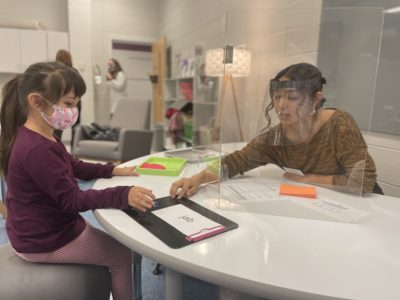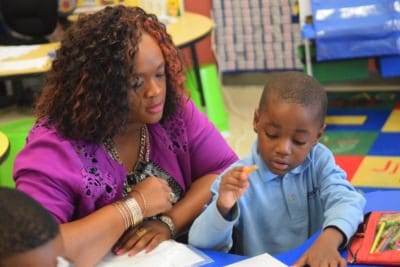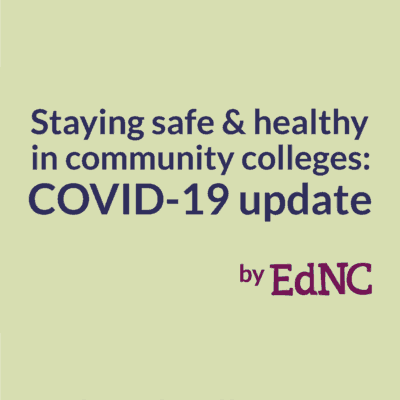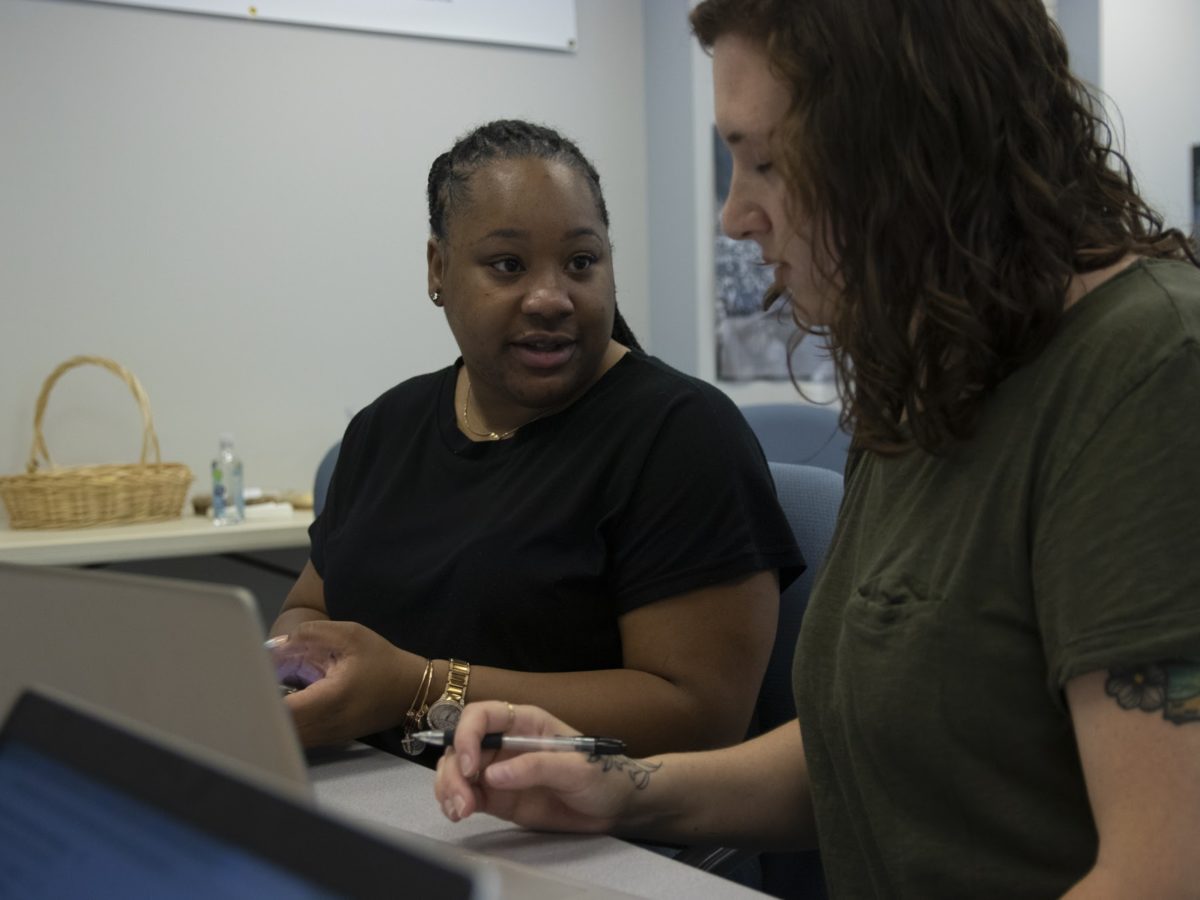

Catherine Brown has a master’s degree in history from North Carolina State University, and out of college went to work as an archivist. Later, she stayed home with her kids as they grew. Her last child recently graduated from high school. As the nest prepared to empty, Brown started looking to the future and decided she wanted to give back.
“I actually wanted to teach from five years old, but when I went to college there was a glut of teachers and they were discouraging people from going into teaching,” she said.
Recently, Brown had worked as a long-term substitute teaching history at Smithfield-Selma High School in Johnston County. When the full-time position came open after about a month and a half, she decided to take it.
And that’s where the Central Carolina Teaching Initiative (CCTI) came in.
“In order to teach, you have to have the credentials, and this was the quickest way to get the credentials,” Brown said. “This allows me to get what I need at my own pace.”
CCTI was started in 2017 by the Central Carolina Regional Education Service Alliance (CCRESA). Lisa Sonricker, program director for CCTI, said the organization could have just built a teacher preparation program for Wake County but wanted something that would be accessible to smaller districts as well.
The program began working with school districts who are members of CCRESA. Its goal is to train what used to be called “lateral entry” participants to become teachers in those districts. Lateral entry programs — now called “residency” — work with people who have careers or degrees in other fields to train and license them to become teachers. CCTI’s participants complete their program requirements while teaching full-time.
Sonricker herself got into education sideways. She came from the business world but eventually got her master’s degree in education. She spent almost 20 years in education — doing everything from teaching in the classroom to working in the central office. Her background, she said, is essential in her current role because it gives her credibility among teachers.
“We’re not going to speak from a place of not knowing. We’re going to speak from a place of experience,” Sonricker said. “That’s what sets us apart and gives us credibility.”
The program lasts about three and a half semesters. A cohort starts in the fall with online distance learning classes that help them learn how to “build culture and context for learning,” according to Sonricker.
The online learning can take place at a student’s own pace, something that Sonricker and Kathy Saunders, CCTI’s program developer and instructor, instituted after realizing through trial and error that starting intensely in the fall was too much for teachers already operating in a classroom and trying to get their bearings.
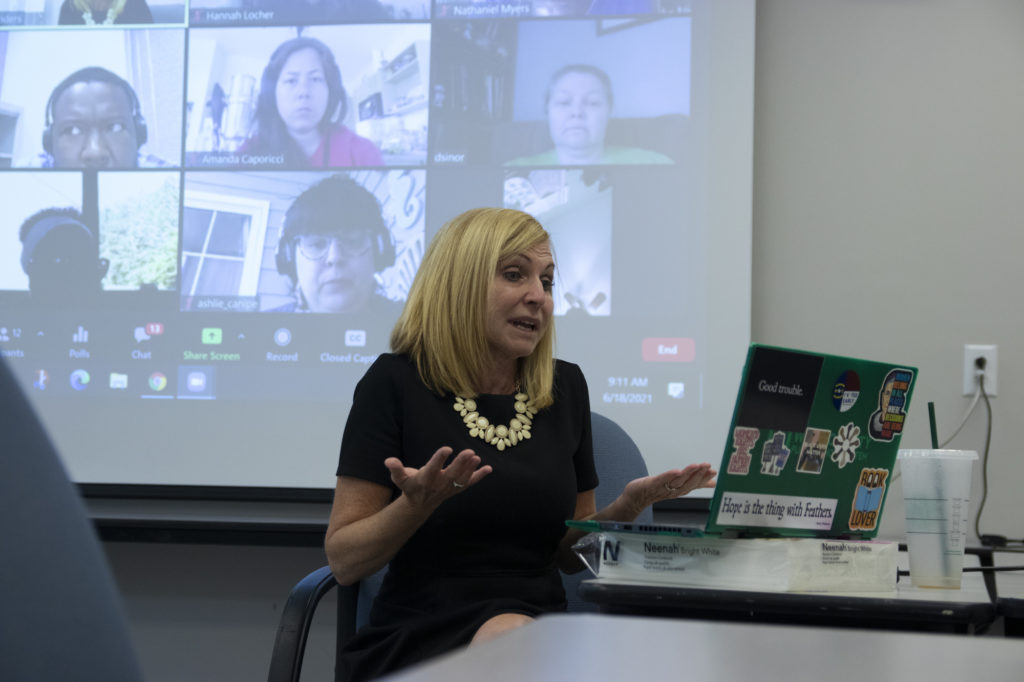

Sonricker said the “meat” of the program comes in the spring and the following fall when participants learn pedagogy and “everything that has to do with being a great teacher.” As they go through the year, students get a coach, learn to develop professional learning networks, work with their cohort, and develop skills as teachers. After that, they put together personal portfolios.
Sonricker said the program looks for a variety of characteristics when choosing its students: diversity, open-mindedness, coaching ability, and persistence. CCTI’s students are more diverse than the typical teacher profile across the state, Sonricker said.
They don’t ask applicants to write essays, but instead want them to describe classroom scenarios and how they would field them. They look for risk takers — people who aren’t afraid to get things wrong. And they ask hard questions.
“Why do you want to be a teacher? Because this job is difficult. It’s a tough job,” Sonricker said.
Rondejia King works at Neal Middle School in Durham. She was referred by two teachers at her school who went through CCTI. Her path to the school was a twisty one.
She graduated college with a degree in dance. Though she had never considered being a teacher, she also couldn’t figure out what to do with her chosen degree.
Out of college, she got a job at Enterprise Rent-A-Car, and while she said it was a great company, it wasn’t what she loved to do.
When a friend told her about a position as a dance instructor at Neal, she jumped, though she wasn’t sure how good of a fit it was going to be. Turned out, it was perfect.
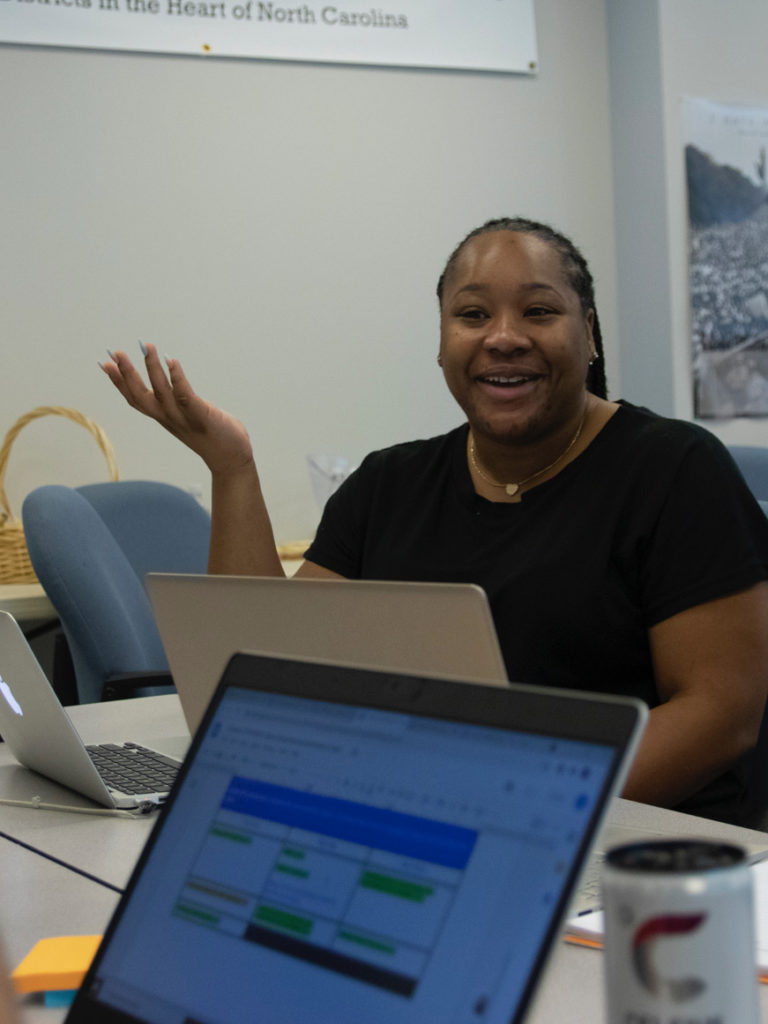

“Once I got in there, I loved it,” she said.
And that emotion is also what Sonricker and her staff look for in prospective students.
“You have to be passionate about it or you’re not going to be successful,” Sonricker said.
The program has now expanded statewide, which it is able to do since it’s mostly online. It started out as a face-to-face program, but COVID gradually forced the program to transition to distance learning. It turns out that enables it to serve a wider geographic area. Sonricker points at the program’s success as a reason why it’s a great addition to teacher preparation in North Carolina.
In addition to helping create a diverse teaching workforce, Sonricker said program graduates are 15 percentage points more likely to return to their schools than teachers from other alternative residency programs, and the first-time pass rate for the edTPA (a teacher licensure assessment) is 100% for the program’s graduates.
“We are very proud of our accomplishments,” Sonricker said. “I feel like we’re leaving a good footprint in North Carolina.”


